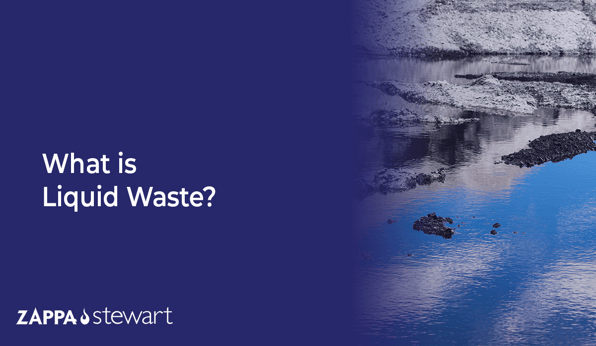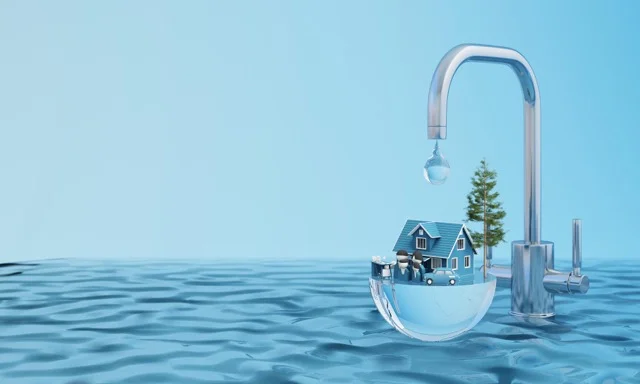Some Known Incorrect Statements About Reclaim Waste
Table of ContentsReclaim Waste for BeginnersReclaim Waste Can Be Fun For EveryoneThe Greatest Guide To Reclaim WasteThe Ultimate Guide To Reclaim WasteReclaim Waste Can Be Fun For Everyone
Check out the types, occurrences, and kinds of liquid waste. Domestic sewer waste refers to the waste and items from a household septic storage tank. This kind of waste is created by human beings in houses, colleges, and other structures. This only includes sewage-disposal tanks that have a drain area. The appropriate administration and disposal of domestic sewer waste need liquid waste to be moved to a sewage treatment plant where the proper methods and devices are related to purify and throw away waste.
Commercial waste usually includes potential dangers, such as flammable materials or a blend of liquid and solid waste products, and calls for a much more innovative and in-depth disposal procedure. The disposal of commercial waste normally entails the filtration of waste before transport to make certain safe and appropriate disposal. Hazardous waste is created from by-products and overflow of commercial processes and production.
This type of waste can not utilize the very same sewer monitoring transport or processes as septic or commercial liquids. The hazardous waste administration procedure needs the assessment and testing of fluid waste prior to it undertakes the disposal procedure (liquid waste removal). Overflow waste is the fluid waste that originates from overflow and excess stormwater in extremely populated areas or cities
Drainage waste can trigger contamination and flooding otherwise dealt with properly. Learn much more about sewer cleansing and waste monitoring. Guaranteeing appropriate waste administration can avoid disasters and decrease environmental injury. Both people in household setups and specialists in industrial or production industries can take advantage of comprehending the processes and policies of fluid waste monitoring.
The Facts About Reclaim Waste Uncovered
Get in touch with PROS Services today to find out concerning our waste management and disposal services and the proper ways to take care of the fluid waste you produce.
This so-called 'wastewater' is not only an essential source yet, after therapy, will certainly be launched to our land, rivers or the ocean. Made use of water from toilets, showers, bathrooms, kitchen sinks, washings and commercial processes is recognized as wastewater.

water made use of to cool down equipment or clean plant and tools). Stormwater, a form of wastewater, is overflow that flows from farming and urban areas such as roofs, parks, gardens, roadways, courses and gutters right into stormwater drains, after rain. Stormwater streams unattended directly to local creeks or rivers, ultimately getting to the ocean.
A Biased View of Reclaim Waste
In Queensland, the majority of wastewater is dealt with at sewer therapy plants. Wastewater is transferred from domestic or industrial sites through a system of sewage systems and pump stations, called sewerage reticulation, to a sewage treatment plant. City governments develop, preserve and operate most sewage therapy plants. Operators are accredited under the Environmental Management Act 1994 to release treated wastewater at an acceptable environmental standard right into rivers.
The Department of Natural Resources encourages regional governments regarding handling, operating and preserving sewerage systems and therapy plants. In unsewered locations, neighborhood federal governments may require owners to mount private or family sewage treatment systems to treat residential wastewater from bathrooms, kitchen areas, washrooms and washings. The Department of Natural Resources authorises the usage of household systems when they are confirmed to be efficient.
In some new subdivisions, therapy of some stormwater to get rid of trash, sand and gravel has actually begun using gross contaminant catches. Wastewater treatment happens in 4 stages: Removes solid issue.
Utilizes little living organisms understands as micro-organisms to break down and eliminate continuing to be dissolved wastes and fine fragments. Micro-organisms and wastes are integrated in the sludge.
Facts About Reclaim Waste Revealed
Nutrient elimination is not readily available at all sewage treatment plants since it needs costly specialist tools. It is becoming more common in Queensland. Clear fluid effluent produced after treatment might still contain disease-causing micro-organisms. If this effluent is released into rivers such as rivers or the sea, the micro-organisms will ultimately die out.

This normally indicates wastewater needs to be treated or contaminants gotten rid of prior to it can important site be released to waterways. Many wastewater flows right into the sewerage system. Under the Act, city governments carry out authorizations and permits for ecologically relevant tasks (Ages) involving wastewater launches that may have a local impact. The division administers authorizations and licences to Periods including wastewater launches that may have a regional or statewide influence.
Reclaim Waste for Dummies
Tracking supplies valid information about water high quality and can validate that licence conditions are being met. The information acquired with tracking gives the basis for making water quality choices.
Comments on “4 Simple Techniques For Reclaim Waste”